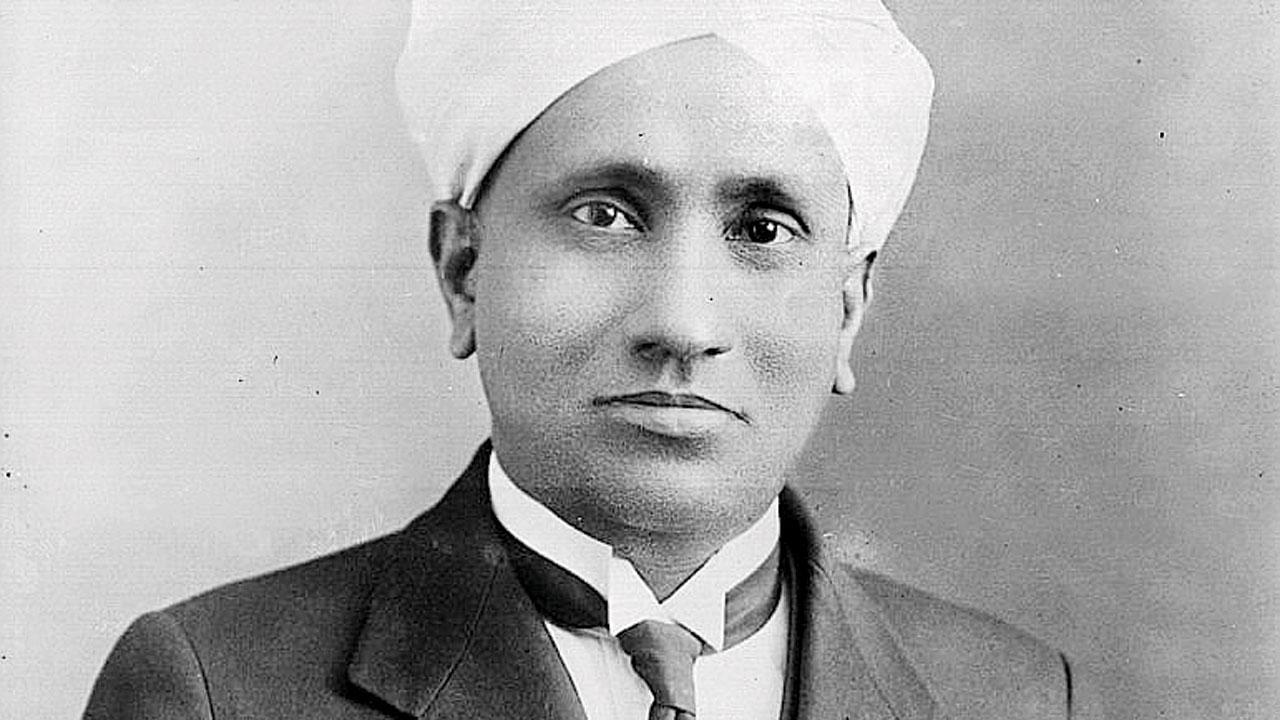Tomorrow, on National Science Day, a new book will release in a two-in-one format presenting fascinating accounts of discoveries and inventions by the brightest minds from the country

The work of physicist CV Raman has been mentioned in the book. National Science Day is observed in honour of his winning the Nobel Prize for Physics in 1930
There are books that authors don’t see themselves writing, but they somehow do. Shweta Taneja’s new title counts as an example of this. The idea of They Found What?/They Made What? (Hachette India) came about one night while the author stood in the balcony of her flat in Bengaluru. Taneja’s goal was to explore science beyond the textbook, in a way that encapsulates the wonder of the subject and the people behind it - scientists. “The idea was to capture the marvel that a scientist feels in discovering something that no one else in the world knows. That sense of achievement an inventor gets when something they dreamt of works well. The sheer imagination and curiosity it takes to pursue any field of science,” Taneja says.
The book has been illustrated by Sharanya Kunnath and includes panels for kids to colour in as well as activity boxes, anecdotes and facts in every chapter. Pic Courtesy/Hachette India
The book featuring illustrations by Sharanya Kunnath releases tomorrow on National Science Day, and is divided into two parts - one that tackles discoveries by Indian scientists and the other that looks at inventions. The chapters delve into a variety of scientific fields - from ecology to space science. The book includes several prominent names from the field of science, some of which include physicist CV Raman, neuroscientist Vidita Vaidya, Mitali Mukerji, chief scientist, CSIR-IIB, and Nobel Prize-winning structural biologist Venkatraman Ramakrishnan. Taneja states that developing the book required intensive research. She wanted to make it intensive and accessible but, at the same time, also incorporate various scientific processes.
Vidita Vaidya
“So I approached the book as a journalist, curating and finalising a list of scientists and contacting them. Then, I made a shortlist of names from the original list, and finally interviewed the selected candidates. I spent hours chatting with each scientist, meeting some, understanding their approach to their field, delving into their processes and finding out what made them stick to their fields,” she says. But the title doesn’t just consist of stories; there are boxes that break down processes, plus panels for kids to colour in. The book also features anecdotes and some haiku pertaining to each account. “For example, [there is] a box on CV Raman and his obsession with diamonds. We also have a box on sniffer dogs, that explains why it was hard to train them. From the secondary stage onwards, the book shaped up more organically, depending on what I found in my research,” says Taneja.
Shweta Taneja
The idea of making it a flipbook, reveals Taneja, was also organic. “I wanted to add some irreverence to a book on science,” she asserts. At the same time, she had also settled on 10 scientists who discovered things, and 10 who had inventions to their credit. Although rote-learning continues to dominate the present-day education system, this title comes as a breath of fresh air, and Taneja shares that she wanted to ignite children’s imagination and spark their curiosity so they don’t look at science as boring or serious: “I was eager to bring out the sense of wonder in these stories and inspire students with them — moments like how brain researcher Vijayalakshmi Ravidranath felt when she saw a human brain through the microscope for the first time. How she marvelled at the sheer efficiency of synapses and neurons that connected this efficient machine. Of the sense of achievement that Divya Mudappa, an ecologist, felt when the rainforest she had grown in the middle of a tea-estate was blessed by a great hornbill. Or the sheer beauty of e.coli bacteria for Manjula Reddy,” she says.
 Subscribe today by clicking the link and stay updated with the latest news!" Click here!
Subscribe today by clicking the link and stay updated with the latest news!" Click here!









